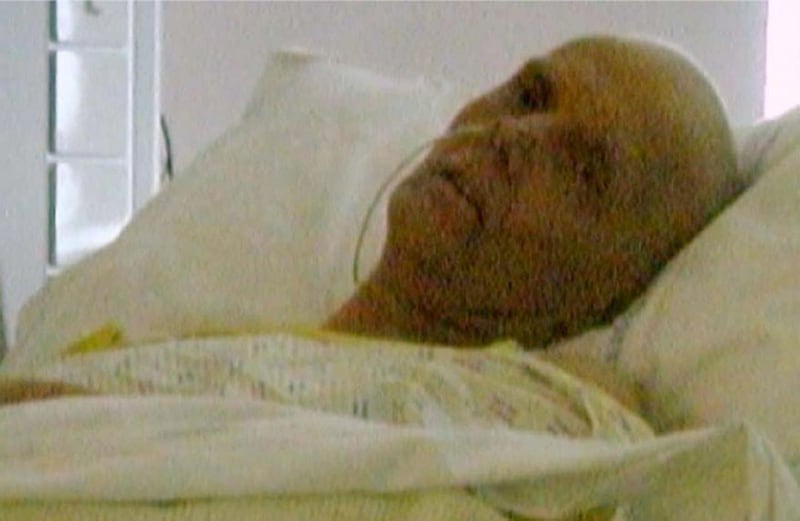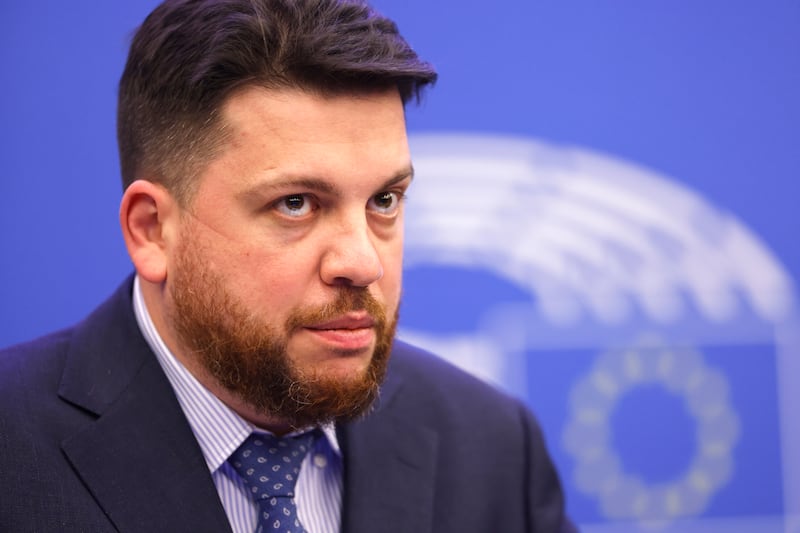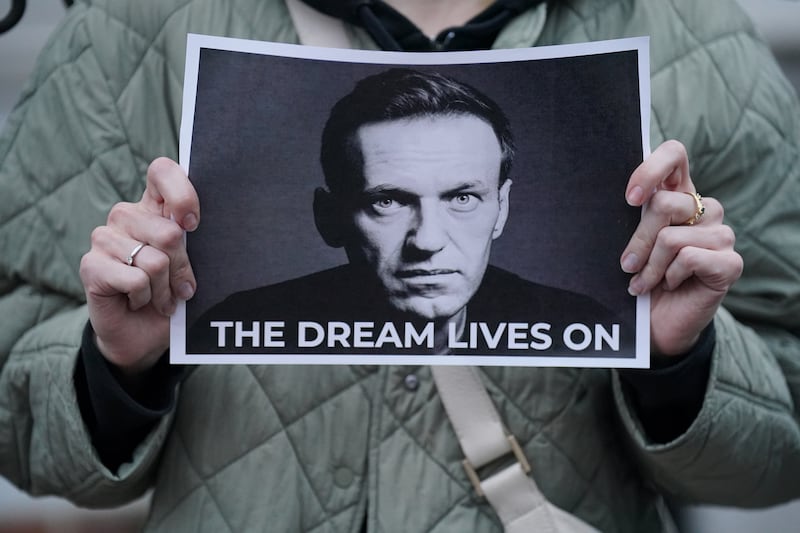The words of The Dubliners’ recording of Dominic Behan’s famous song The Patriot Game are familiar to most of us. They keep coming to mind now with the death of Alexei Navalny in one of Putin’s gulags in Russia.

Navalny survived the attempt by Putin’s goons to murder him by spraying his clothing with novichok nerve agent in 2020. Navalny was lucky. The aircraft he was on when he took ill put down in an emergency landing. He received hospital treatment and was evacuated to Germany.
When Navalny recovered he chose to return to Russia to continue his opposition to Putin. In the words of The Patriot Game: ‘For love of one’s country is a terrible thing / It banishes fear like the speed of a flame / And it makes you a part of the patriot’s game.’
It’s the line about “banishing fear” that is most striking. Navalny, like Lenin in exile in Tsarist times, could have stayed outside Russia and campaigned for regime change while remaining relatively safe. He chose to go back and has now died.
Whatever the precise circumstances of his death, it is reasonable to conclude that Navalny’s cruel treatment in Putin’s grim prison camp led to a state-sanctioned assassination. Putin has form for this. Back in 2006 Russian agents in the FSB (the successors to the KGB) assassinated Alexander Litvinenko in London. Those Putin sees as enemies or traitors have a habit of falling out of windows in high-rise buildings.

One critic, Boris Berezovsky, used to come into the BBC Newsnight studios for interviews with me, but he was pre-recorded for security reasons. Berezovsky always had at least two well dressed bodyguards to look after him. He died after apparently hanging himself in 2013, although the English coroner did not record a verdict of suicide. I doubt he killed himself.
Then – to take another notorious example – there is Sergei Magnitsky. He worked as a tax adviser for a company called Hermitage Capital, run by the American-British financier Bill Browder. When Magnitsky discovered what might be called “financial irregularities” – dodgy dealings that the rest of the world would understand as official Russian state corruption — he too died in a Russian prison cell. Browder ensured that the Magnitsky Act of the US Congress memorialises the man and sanctions at least some of his killers.
The reason all these (and many more) killings by the Putin regime remind me of The Dubliners’ famous song is because I met and interviewed Berezovsky and Browder and had the privilege of interviewing Alexander Litvinenko’s brave widow Marina.
Love of Russia, bravery and a strong desire for a better Russia is perhaps the most impressive thing they all had in common. But the Russian patriot game brings me to another extraordinarily brave Russian, Vladimir Kara Murza.

I never met him in person, but several times online on Zoom. He was based in Washington DC and in our last interview Vladimir told me he was planning to return to Russia. During that conversation I said to him that given what had happened to Navalny, and to his own mentor, the opposition leader Boris Nemtsov, (shot dead in central Moscow in 2015), I thought he was crazy to go back. He strongly brushed off this idea. He said he was a patriotic Russian and a politician and that a better Russia was possible.
We need to remember the bravery of Kara Murza, Navalny, Nemtsov and all the others. They make me believe that a better Russia is indeed possible. No wonder Putin hates them
On return, he was arrested. In April 2022 Vladimir Kara Murza was sentenced to 25 years in prison for opposing the Ukraine war. He is now somewhere in the horrendous Russian prison system.

We need to remember the bravery of Kara Murza, Navalny, Nemtsov and all the others. They risk their lives to show that there are many, many Russians for whom ‘love of one’s country …banishes fear like the speed of a flame / And it makes you a part of the patriot’s game’.
They make me believe that a better Russia is indeed possible. No wonder Putin hates them.










